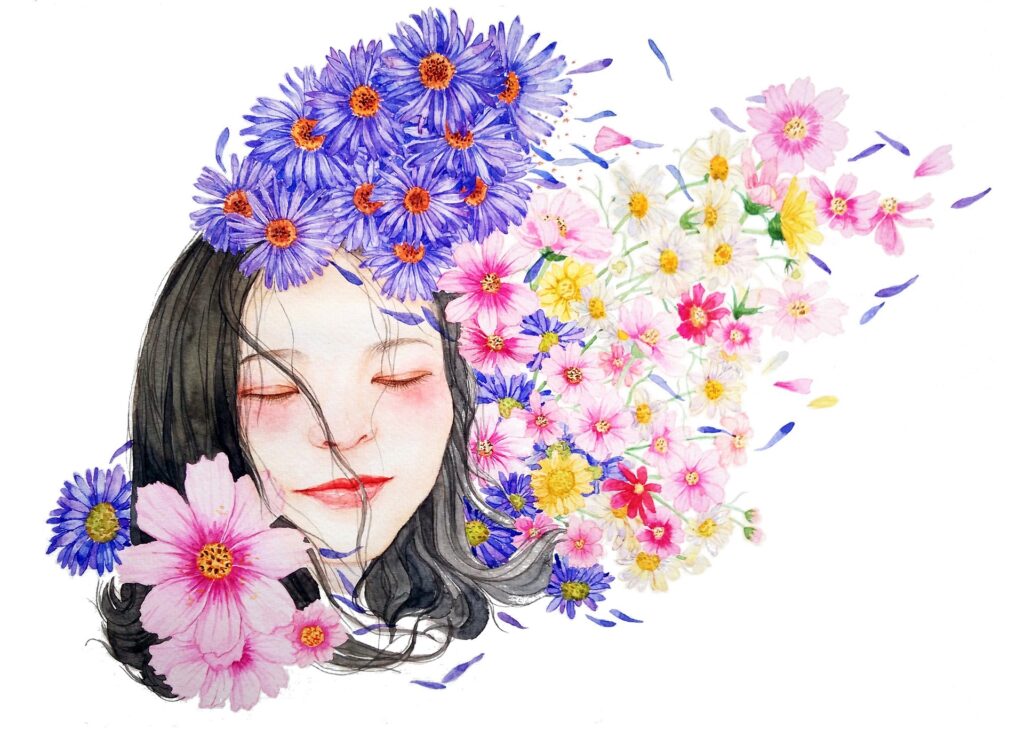“Being kind to yourself” is an alien concept for most of us that suffer from anxiety, but something we must make part of our lives if we are to recover. Until we learn to be honest with ourselves about ourselves, and affirm our self-worth, we will struggle in any situations where our behavior or performance may be judged.

The Issue
Part of our problem is that as anxiety sufferers we tend to be perfectionists and judge ourselves very harshly. We are also quick to assign blame to ourselves, even for things for which we are not responsible or can’t control. Bizarrely, we then beat ourselves up for our failure/weakness/incompetence/stupidity or whatever negative label we assign to ourselves.
To avoid this self-inflicted punishment, we become highly sensitive to being judged or assuming we are being judged. Just a sideways glance from someone can be interpreted as disapproval and cause us to crumple internally. Yet it may have been an innocent glance and not connected at all to what we are doing or saying.
We are highly (and unfairly) self-critical.
This habit of being very hard on ourselves and beating ourselves up is very destructive. It reinforces a negative self-image which just makes everything worse. We don’t like or accept who we are, or how we are, because we constantly take the most negative view of ourselves and our behavior. We become highly sensitive to any criticism from others, and tend to interpret looks and comments as personal, and potential criticisms.
These criticisms may be real, or they may be perceived. But since we make the assumption they are criticism, it really doesn’t matter. Even with actual criticisms from others, they are often unfounded and unfair. But rather than dismiss them as unimportant, or defend ourselves, instead we stay quiet and internalize the criticisms. In doing so, we subject ourselves to significant emotional pain and shame.
This emotional pain is something we fear and hate, so it makes us even more determined to avoid being judged. This can manifest in our behaviors in many ways. We may be a people-pleaser, a perfectionist, or simply try to avoid situations where we might be judged. Or perhaps a combination of all three.
Typical examples of avoidance behavior are that we may be reluctant to speak up, change jobs, meet up socially, or enter a relationship. In essence, we become afraid to be, and to show, our true selves. Instead, we try never to stand out. We avoid unnecessary responsibilities, drive ourselves crazy trying to never screw up, and we may even become socially reclusive.
We Do It to Ourselves
Most of this pain and shame is self-inflicted. Other people actually judge us and care about what we do or say far less than we imagine. They are generally wrapped up in their own lives and more worried about their own insecurities.
There are times of course when people will delight in putting us down (often those we know quite well), but this in reality says more about them than us. They are usually insecure, and are trying to raise their view of themselves in comparison by diminishing their view of us. This behavior is better simply ignored, and not taken personally.
We are our own worst enemy.
But the greatest damage we do to ourselves results from having developed a poor self-image. We actually adopt the role of criticizer, becoming both the giver and receiver of criticism. We belittle and berate ourselves often, sometimes randomly.

If you are like I was, you have a memory bank full of shameful or embarrassing incidents that your mind likes to dredge up. They may be years old, but to this day they cause you to judge and curse yourself. Your anxious mind seems to bring them out from time to time, solely for the purpose of beating yourself up.
This apparent need to beat ourselves up and put ourselves down sheds light on the root of this behavior. It also lets us see how we can change it, and develop a fair and honest self-image.
A Deeper Dive
Perfectionism and social anxiety I believe are present to a degree for all anxiety sufferers. For some they are the core anxiety issue. For others they are less significant, but they still exist. Low self-esteem is essentially universal among anxiety sufferers.
What I learned for myself and observed in many others over the years, is that while we think we fear failure and humiliation because of the negative judgments it will invite from others, what we actually fear far more is the massive self-condemnation (beating ourselves up) and shame that follows on instantly.
It is the shame from the self-criticism that we fear and hate so much.
The shame hits us so quickly that we associate it with the initial perceived negative judgment by others. We don’t notice that in between is where we take this external criticism and use it to internally berate ourselves. It is this self-condemnation (and not the criticism by someone else) that actually causes the shame.
The harsh judgment of others can be painful, but is not even close to the pain and shame we inflict on ourselves. As I said, it is the self-judgment that is so emotionally painful, and it is this that triggers the anxious reaction.
What does this all Mean?
The great news in this revelation is that while we cannot control what others think of us, how they react to us, or what they say about us etc., we can change how we view and judge ourselves. We can stop beating ourselves up for real or perceived failures. Instead, we can just shrug and accept that we are human, and that we don’t have to be perfect. We can then take it one step further and decide to like ourselves just the way we are.
Wow! Now there is a strange concept for an anxiety sufferer to consider – accepting ourselves just the way we are. No need to change, no need to be someone we are not. Just a need to learn how to be kind to ourselves and accept ourselves warts and all.
We are fine just the way we are.
As I have said in other writings, the magic of this is that when we stop berating ourselves and start accepting our humanity and imperfections, we find that criticism from others (both real and perceived) disappears too.
It seems to me that once we believe in ourselves and accept ourselves unconditionally, people unconsciously sense this and no longer put us down. But even if they do, it no longer matters anyway, because we don’t accept this judgment. Therefore we don’t amplify it and internalize it like we used to. It just flows off us like the proverbial “water off a ducks back”.
This is all good to know, but unless we understand how to implement the necessary changes in our daily life, it does not help us much.
How do we Change this Behavior?
I had no idea how being kind to myself worked. But with the concept in my head, I began to notice where I placed unreasonable expectations on myself, where I mercilessly beat myself up for things (even trivial things), or I pushed myself too hard and caused fatigue. In some instances, I tried to change things outside my control, or prove things that served no real purpose.
The process of changing things started with: “Oh I see what I’m doing”, then moved on to: “Why do I keep doing that?”. I came to the realization that my slip ups were not that big a deal, and that everyone screwed up. I became able to smile at my mistakes and say to myself: “So what?”. If someone criticized me, I accepted responsibility, but didn’t make it a bigger deal than it actually was.
We should treat ourselves at least as well as we treat others.
As my awareness grew, I questioned whether or not I was being fair to myself when I beat myself up for something I did or said. I asked myself if this is how I would respond in the same situation with a good friend. Of course it wasn’t. With a friend I would have told them it wasn’t such a big deal, and that they were being too hard on themselves. I would tell them how great they really were, and remind them that everyone makes mistakes, isn’t perfect, and that they are simply human.
The question then became – “Why would I treat myself so much more harshly than I would treat a good friend?” This rhetorical question allowed me to give myself the compassion and understanding I would give to others.
I also began to separate what I thought about the things I did or said, versus what I thought about myself as a person. Screwing up, doesn’t make us a bad person. I found that if I simply acknowledged and took responsibility for my error, without making it a bigger deal than it was, I could move on quite easily. If I said something insensitive to someone, then I found a simple apology was all it needed. By doing so, I acknowledged and took responsibility for my comment, and everyone was able to move on.
It is also helpful to remind yourself that you control only what you do in this moment. You can choose your intention, and your effort, but you cannot always control the outcome. Sometimes the results may be poor. However, don’t make excuses, and don’t use your intentions or efforts as a way of justifying yourself. This isn’t necessary or helpful, and only alienates people.
To those affected by any mistakes you make, all you need to do is acknowledge and apologize for the mistake and offer to make it right. At the same time, though, don’t beat yourself up for it. In your own mind, give yourself credit for your good intentions and efforts. Use the poor outcome not as whip to punish yourself, but as a tool to improve your efforts next time.
This skill takes a little time to learn, because it requires us to take responsibility for our actions – without beating ourselves up if things don’t work out. This can seem like a contradiction at first, but it’s not. When you do this for a while, you will understand the difference, and how it changes everything.
The Payoff
When I implemented these principles in my life and started really being kind to myself, it had profound impacts on my life and well-being. I was no longer hiding from my humanity and my imperfections. I was owning them and admitting them. Strangely people’s typical response was not to jump on my admissions as a sign of weakness, but to engage with me in a much more real and honest way.
People respond to honesty and openness with honesty and openness. On the rare occasions when someone did use my admissions and openness against me, I found I was able to shrug and put it down to their issue, not mine. But that was a very rare occurrence.
We are the only ones who care so much about our mistakes.
I became very aware that most people were not bothered by my mistakes anyway, and that all along I had been the one who made them such a big deal. With no good reason, I had been holding myself to a much higher standard than anyone else was expecting from me. I also held myself to a higher standard than I would ever hold anyone else, or to which they would typically hold themselves. Clearly, I had lost sight of what it meant to be human, to be fallible, to be able to make mistakes, admit them, and move on.
It’s fascinating how we can be so compassionate and non-judgmental with others, and yet so hard on ourselves FOR THE VERY SAME THINGS! This makes no sense to me now, but I was that way for most of my life.
I find that having practiced being more compassionate to myself, I have become even more compassionate and accepting with others than I was before. This is especially true with those that suffer from anxiety and are very hard on themselves, because I see in them the patterns of behavior that used to cause my own suffering.

Being kind to myself by relaxing my standards and expectations of myself, not judging myself harshly or unfairly, and cutting myself some slack when needed, has made living life so much easier and more open. For perhaps the first time in my life I really like who I am, and accept who I am – all of it, including my weaknesses and shortcomings. It has unleashed great feelings of freedom, ease, acceptance, and peace.
Summary
The actions required to make this change in your life are:
- Become aware of times when you have self-critical thoughts
- Become aware how often you place very high or unreasonable expectations on yourself
- Notice how you are highly sensitive to (and often looking for) any negative judgments or criticism from others.
- See if you can observe how you use real or perceived criticism to beat yourself up
- Check if you dredge up old memories of painful or embarrassing events to beat yourself up
- Ask yourself why you are so hard on yourself.
- Question if this is how you would treat a good friend
- Ask yourself why you don’t deserve to be treated as well as a good friend
- Ask yourself if you need to demand such high standards of yourself
- Adjust the standards you expect of yourself to something more fair and reasonable
- Accept that mistakes and failures are part of being human, and acknowledge that you are in fact human!
- Separate “screwing up” from being a “screw up”. Making mistakes does not make you a bad person
- Don’t make excuses. Acknowledge mistakes openly, offer to fix it, and move on
- Acknowledge and accept that outcomes are not always in your control
- Give yourself credit for your efforts and your good intentions. Don’t judge things purely on the outcome
Practice implementing these, and you will notice how much better you feel about yourself. This in turn will reduce stress and anxiety levels, and begin to open things up in your life.
Be kind to yourself. You deserve it!
Remember: Be kind to yourself. You deserve it!
Images by jiao tang, Gerd Altmann from Pixabay







